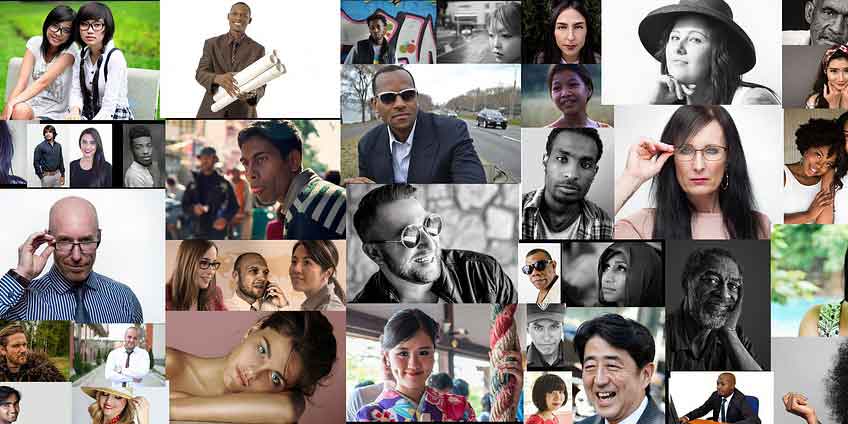COVID-19: Why culturally intelligent people are good for business
In tough times, cultural intelligence is a business asset
Amid the seemingly endless challenges facing every sector today, cultural intelligence is in danger of being sidelined by competing priorities. Cultural skills can be positioned as an extra, not a necessity, in these times of budget constraints and the threat of economic turbulence. This briefing sets out four reasons why that would be a mistake.
How people interact, communicate and behave is closely linked to their cultural identity and the assumptions they hold about the best way to achieve what they want in a given context. Cultural intelligence gives you the insights and skills you need to perform effectively in multicultural and international settings. But new research has found additional business benefits: it turns out cultural intelligence helps people think better.
Demographic facts have economic implications
With more than 300 different ethnic groups, Australia is one of the most culturally diverse countries. One in two Australians was born overseas or has a parent born elsewhere and Australia has a higher proportion of migrants than any other nation with a population over 10 million. A major Curtin University report dispels the myth that migrants have a negative impact on jobs and wages. Report co-author Alan Duncan found that “the skills of the migrant workforce are driving productivity gains.”
Public sector organisations seek to serve the needs and interests of this increasingly diverse community. In a similar way, private sector organisations seek to sell their products and services to groups that don’t think and behave identically. This prioritises the need to understand the complex cultural realities of today’s Australia and, better still, to reflect this complexity within your organisation, such that your internal demographics mirror the broader society. A culturally intelligent organisation is able to minimise the risk of strategic blunders and missed targets.
Maximising gains, minimising pains
In fact, most organisations are already culturally diverse, with people from around the world working side-by-side in every team. Even if that isn’t yet your reality, there’s probably senior level commitment to moving in that direction. So it’s increasingly likely you’ll work with colleagues whose culturally-based assumptions differ from yours. But management approaches developed for the fairly homogenous workforces of the past simply won’t deliver positive results today. This matters since it’s now well established that diverse teams are more innovative than teams where everyone is pretty much the same. Diversity outperforms sameness. But if employees lack the cultural intelligence to manage their differences well, then these diversity gains stay locked up and unavailable.
Economists have identified that there is an untapped pool of migrant talent with the potential to deliver up to $6 billion to the economy each year. It seems we are not capitalising on the abilities of our migrant population. A key barrier experienced by well-qualified migrants concerns limited cultural insights and skills. When people don’t understand each other’s norms and preferences, they can feel uncertain about how to get ahead as they’d like. Australia is missing out on the economic boost available, if we could overcome this skills wastage.
Australia needs to thrive in an interconnected world
It’s now accepted that Australia’s future is intimately bound up with Asia. There are obvious economic and strategic reasons why this is so. But, while the Asia-Pacific region is rich with opportunity, it’s also fraught with complexity. Cultural differences are more pervasive than many Australians appreciate. Rewards are there for culturally intelligent organisations which have developed the ability to address these challenges. Equipped with even a basic portfolio of insight and skills, they can operate in the ways most likely to deliver enduring partnerships.
Culturally intelligent people think better
Building cultural intelligence involves challenging narrow preconceptions that your way is the only way. You soon learn there are alternative styles of thinking and behaving with their own validity. You build insight into your biases and assumptions. You learn about the value priorities and communication preferences of other groups. Above all, you learn the skills to bridge the gaps between different groups.
Now researchers are examining the broader implications of all this for problem solving and decision-making. It’s been found that culturally intelligent people have increased levels of what’s called ‘integrative complexity’. This is a measure of your intellectual style. Culturally intelligent people are better able to make connections among different perspectives, balance competing interests and identify constructive compromises.
Those working with and across cultures are frequently in situations where they may not fully understand everything that’s happening. This develops a tolerance of uncertainty, intellectual humility and open-minded thinking. These same attributes support complex problem-solving. Such team members are less likely to succumb to the traps of biased reasoning and overconfidence. Recent studies at INSEAD and Columbia show this leads to tangible increases in professional opportunities for individuals, while providing culturally intelligent organisations with important strategic advantages.
PRACTICAL IDEAS TO APPLY IN YOUR BUSINESS
Is cultural competence a risk in your organisation?
How culturally intelligent is your organisation? Answer ‘yes’ or ‘no’ to each question.
1. Would you describe your organisation’s workforce as culturally diverse?
2. Is cultural diversity represented at every level, including executive?
3. Does your organisation understand the cultural diversity of the community or market you target with your services and products?
4. If your organisation operates internationally, is there cultural intelligence training to support these endeavours?
5. Is there broad-based understanding of the cultural implications of what your organisation does?
6. Is cultural intelligence discussed as part of regular strategy and business planning conversations?
7. Does cultural intelligence feature in your leadership and management frameworks?
8. In areas of your organisation where problems are solved and decisions made, is there training in how to think better?
9. Are senior people aware that cultural intelligence develops better thinking more generally?
Each ‘no’ represents a cultural gap and some risk. What’s the level of cultural risk in your organisation?



